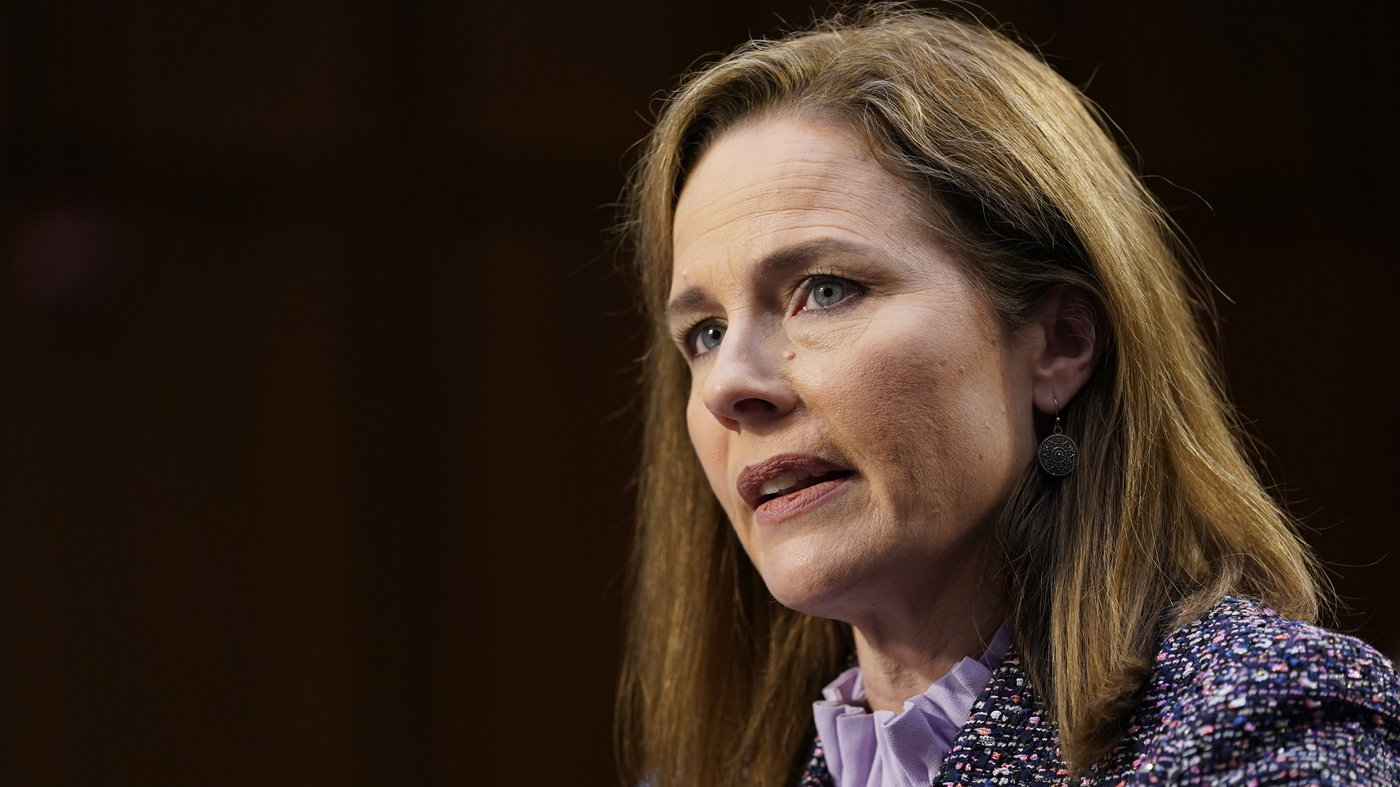
Supreme Court nominee Amy Coney Barrett fielded questions from 22 senators over two days before the Senate Judiciary Committee.
Amy Coney Barrett, President Trump's nominee to the Supreme Court, sat for nearly 20 hours of questioning by 22 members of the Senate Judiciary Committee over two days.
All Republicans will vote yes and all Democrats will vote no and that will be the way the breakout of the vote," Graham said.
She skillfully parried back and forth with Democrats who were frustrated she wouldn't be pinned down and kept a cool, calm demeanor, even as many warned that her addition to the court could adversely affect millions of Americans.
Nominees for the high court in modern times have deliberately avoided directly responding to questions.
They said that President Trump publicly vowed to appoint judges who would overturn Obamacare and that recently he pushed for speedy confirmation of his nominee to the high court in the event that the 2020 election results ended up before the court.
The Supreme Court is slated to hear a case involving the Affordable Care Act just a week after the November election.
They argued that Barrett's writings and selection by the president could mean she would be a vote on the court to dismantle the law.
Over and over Barrett said she had no agenda and that she never made any deal or discussed the issue with the president before her nomination.
With the presidential election mere weeks away and concerns about close contests or legal challenges, Barrett was asked if she would recuse herself if such a case came before the high court.
Barrett said no person was above the law, but also said "the Supreme Court can't control whether or not the president obeys.".
Barrett also said she can't answer a question about whether the president has an absolute right to pardon himself because it hasn't been tested in court and is a question that calls for legal analysis.
Joni Ernst, one of two female Republicans on the committee, touted the historic moment of adding a woman to the court in the same year women are marking 100 years of getting the right to vote.
Republicans also went into the hearings spoiling for a fight with Democrats over Barrett's religious views, but that didn't materialize.
Dianne Feinstein, remarked about Barrett's Catholic faith, "the dogma lives loudly within you." Republicans accused Democrats of an anti-religious bias and some used their opening statements to chastise any who would suggest that Barrett's religious views would interfere with her job as a judge.
Still, Republicans periodically argued that the Democrats' line of questioning was unfair or condescending toward the accomplished jurist
He also said that Kavanaugh's confirmation forever changed the ability to garner large bipartisan votes on nominees to the high court
Graham celebrated Barrett's place in history on Wednesday, saying, "This is the first time in American history that we've nominated a woman who is unashamedly pro-life and embraces her faith without apology, and she is going to the court."